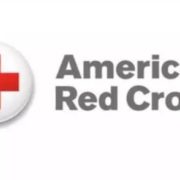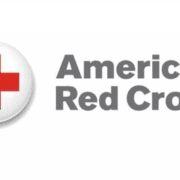Upcoming American Red Cross Blood Drives In The Four-County Area
The Memorial Day weekend kicks off the unofficial start of summer, when people’s thoughts turn to vacations and relaxing a bit from normal routines. But the American Red Cross is asking for blood donors to keep appointments on their calendars, especially during the summer months and especially near holidays.
Type O blood donors are especially needed.
Blood donations are critical for people waiting for lifesaving care. Download the Red Cross Blood Donor App, visit RedCrossBlood.org or call 1-800-RED CROSS (1.800.733.2767) to schedule a time to give.
As a small thank you, the Red Cross is giving Red Cross beach towels to all donors (while supplies last) through May 31. May donors also will be automatically entered for a chance to win a trip for two to the 2023 MLB All-Star game in Seattle. The prize includes two tickets to the game, round-trip airfare, four-night hotel stay, $750 gift card and more.
Those who come to give June 1-30 will receive a $10 gift card by email to a merchant of their choice. Plus, they’ll also be automatically entered for a chance to win a backyard theater package including a projector and screen, projector tripod, smokeless firepit, Adirondack chair set and a movie night snack package.
Here’s a list of upcoming blood drives in the four-county area between now and June 15:
Vance
Henderson
5/30/2023: 10 a.m. – 2:30 p.m., Central Baptist Church, 2574 Ruin Creek Rd.
6/8/2023: 1 p.m. – 6 p.m., Raleigh Road Baptist Church, 3892 Raleigh Rd.
Granville
Creedmoor
5/26/2023: 2 p.m. – 6:30 p.m., Creedmoor United Methodist Church, 214 Park Ave.
Warren
Macon
6/1/2023: 2 p.m. – 6:30 p.m., Macon Baptist Church, 159 Church St.
Franklin
Louisburg
6/3/2023: 9 a.m. – 1:30 p.m., Rock Spring Baptist Church, 34 Rock Springs Church Rd.
How to donate blood
To make an appointment, simply download the American Red Cross Blood Donor App, visit RedCrossBlood.org, call 1-800-RED CROSS (1.800.733.2767) or enable the Blood Donor Skill on any Alexa Echo device to make an appointment or for more information. A blood donor card or driver’s license or two other forms of identification are required at check-in. Individuals who are 17 years of age in most states (16 with parental consent where allowed by state law), weigh at least 110 pounds and are in generally good health may be eligible to donate blood. High school students and other donors 18 years of age and younger also have to meet certain height and weight requirements.



